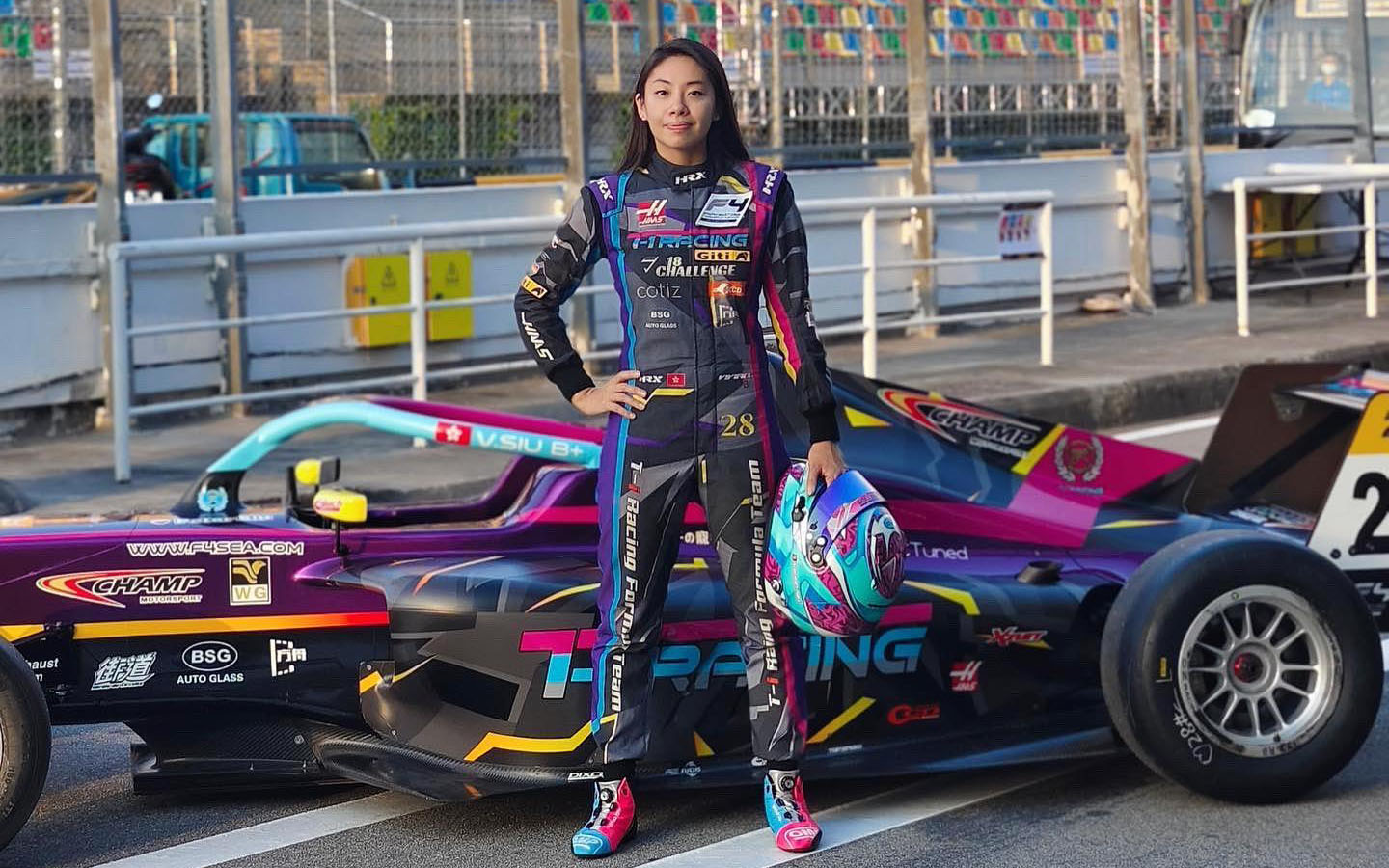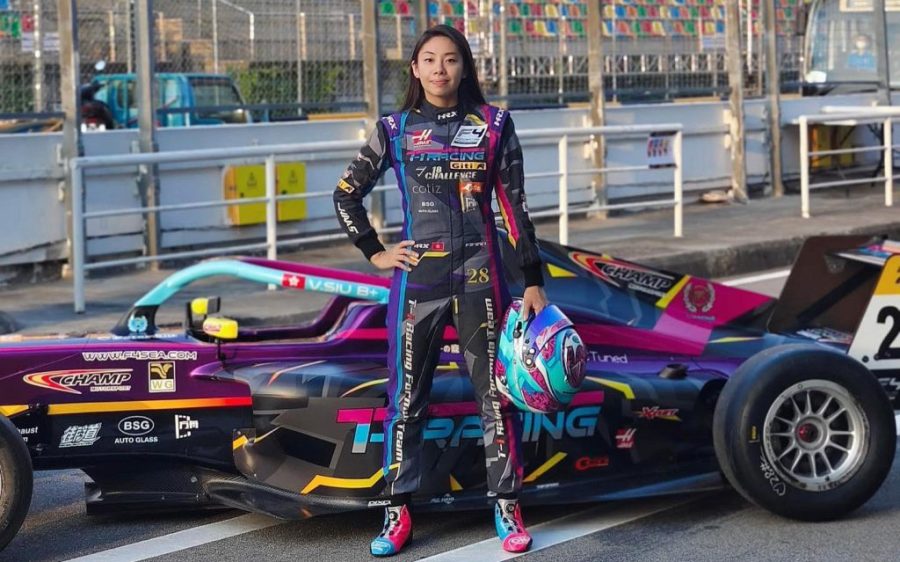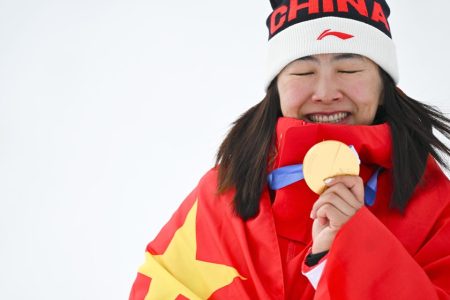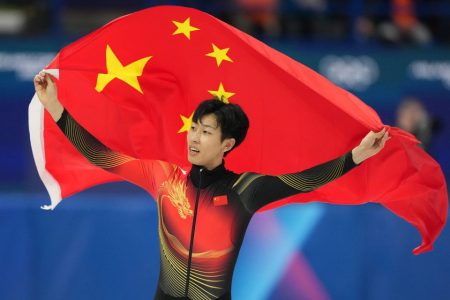Vivian Siu is a fighter – there’s no two ways about it. The Hong Kong native showed her mettle last year when she competed in the 70th Macau Grand Prix, despite having only taken up formula racing six months earlier.
By day, Siu is a director at UBS Investment Bank. But through hard work and perseverance, she has also become the first female F4 racer to finish the Macau Grand Prix, beating the likes of two other female competitors, Bianca Bustamante of the Philippines and Miki Koyama of Japan – both promising young professionals. She also broke new ground at Macao’s marquee sporting event by becoming its first openly queer female competitor.
[See more: Five female racers you’ll see at the 2023 Macau Grand Prix]
While Siu’s entree in the male-dominated world of motorsport is certainly film worthy, it was her personal struggles that grabbed the attention of award-winning British filmmaker Jonathan Finnigan. For his upcoming documentary Zero to Macao, he tracked Siu through her journey, from her very first F4 race in May 2023 to her Macau Grand Prix debut that November.
How the motorsport film Zero to Macao took shape
The two met in April of last year, after an acquaintance mentioned Siu to Finnigan as a person of interest. At the time, neither had any certainty over what shape the project would take.
“When I first met him [Finnigan], I didn’t know it was going to be a documentary,” says Siu. “I didn’t know where the journey was going to end, or if it was going to go anywhere. I was hoping that I’ll get some free footage of me driving professionally…but I never would have imagined he would be with me through the journey and make a film out of it.”
[See more: Bianca Bustamante opens up about her mental health]
Finnigan agrees, noting that “we both went into the unknown on this project.” He states that it was not a given that Siu would qualify for the Grand Prix and be able to gather the necessary funding. There was also the question of whether or not she would be physically and mentally fit enough to join the race. The director adds that “even if she did get to Macao, [there were doubts over] whether she would finish the race or crash in the first quarter…anything could have happened.”
Despite the uncertainty, the pair took the plunge. For Finnigan, it was an opportunity to experiment with an alternative method of filmmaking that he had never attempted before. “Normally you have a budget, a broadcaster [and] a schedule. I had none of that.”
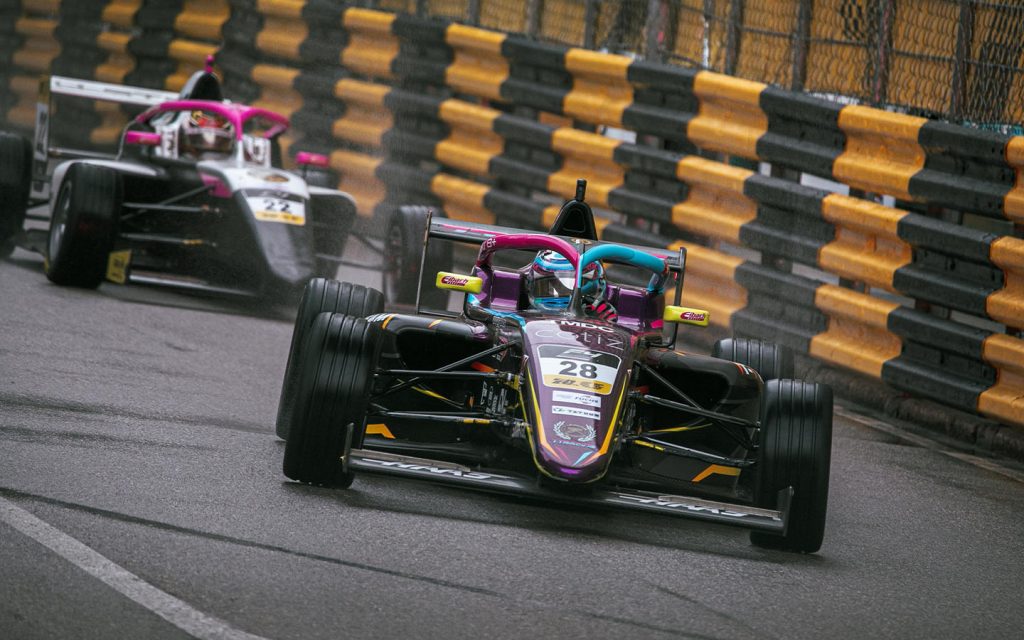
Hong Kong racer Vivian Siu’s background
Filming of Zero to Macao began on 19 May at the Zhuhai International Circuit, where Siu made her debut as a racer in the F4 Chinese Championship. Finnigan also conducted the first of multiple interviews with her around this time, cutting up a teaser to get a feel for the project.
A total of seven or eight interviews, between 30 to 45 minutes each, were eventually conducted, giving the film far greater depth than the usual sports documentary. In an intimate, conversational setting – Finnigan was the only crew member present – Siu felt able to open up and share her background, which Finnigan describes as “unfortunate.”
Siu prefers to use the term “troubled,” noting that for “the past 10 to 15 years of my life, I’ve really been struggling to keep my head above water.” Part of the difficulty comes from her estranged relationship with her late father, who is from Macao.
[See more: The 70th Macau Grand Prix: Photos from an unforgettable weekend]
He did not accompany the family when Siu and her mother emigrated to the US in 2002.
When Siu’s mother succumbed to cervical cancer in 2008, the then 16-year-old Siu was forced to return to Hong Kong, entering a low point in her life and dropping out of high school. Fortunately, the hiatus was brief. Siu eventually completed her secondary education, graduated from Columbia University in New York City, and entered the world of banking.
By the time Covid-19 travel restrictions had been permanently lifted in 2023, Siu was eager to explore her interest in racing, which had lain dormant since childhood. Zero to Macao makes her long gestating love for racing quite evident from the get-go, as Finnigan points out that “the second shot is her whizzing around as a two year old in a little racing car with a chequered flag on the front.”
Other participants in the documentary
Apart from Siu, the movie features members of her T-1 Racing team, which included Ben Lau and Jacky Wong, her mentors in the world of motorsports. Former Malaysian F1 driver Alex Yoong, who guided Siu during the South East Asia Championship in Zhuzhou shortly before the Grand Prix, also lent his expertise as an interviewee. Siu’s interviews, however, remained the anchor point of the documentary, a point that Finnigan was well aware of, as he framed them differently from the others.
“I had her [Siu] looking directly into the camera with her interview,” the director explains. “She’s the only person in the story that does that. All the other contributors look off camera. It’s a subtle difference, but it’s quite a powerful one because she’s telling her story direct[ly] to the viewer. Everybody else is just a witness.”
[See more: ‘I am confident in my ability’ says Formula driver Tiago Rodrigues]
Siu points out that she never felt bothered by his camera, as the director “does a very good job in filming from far away.” This approach also allowed for naturalistic scenes between Siu and her 94-year-old grandmother, who is also a part of the documentary.
Zero to Macao also eschews making any didactic pronouncements on Siu’s orientation.
“I think one thing the film does well is it kind of subtly normalises same sex relationships, which is something that not a lot of platforms do,” Siu says. “I really hope my story, or even the film, can help people be aware this type of relationship exists and we should normalise it.”
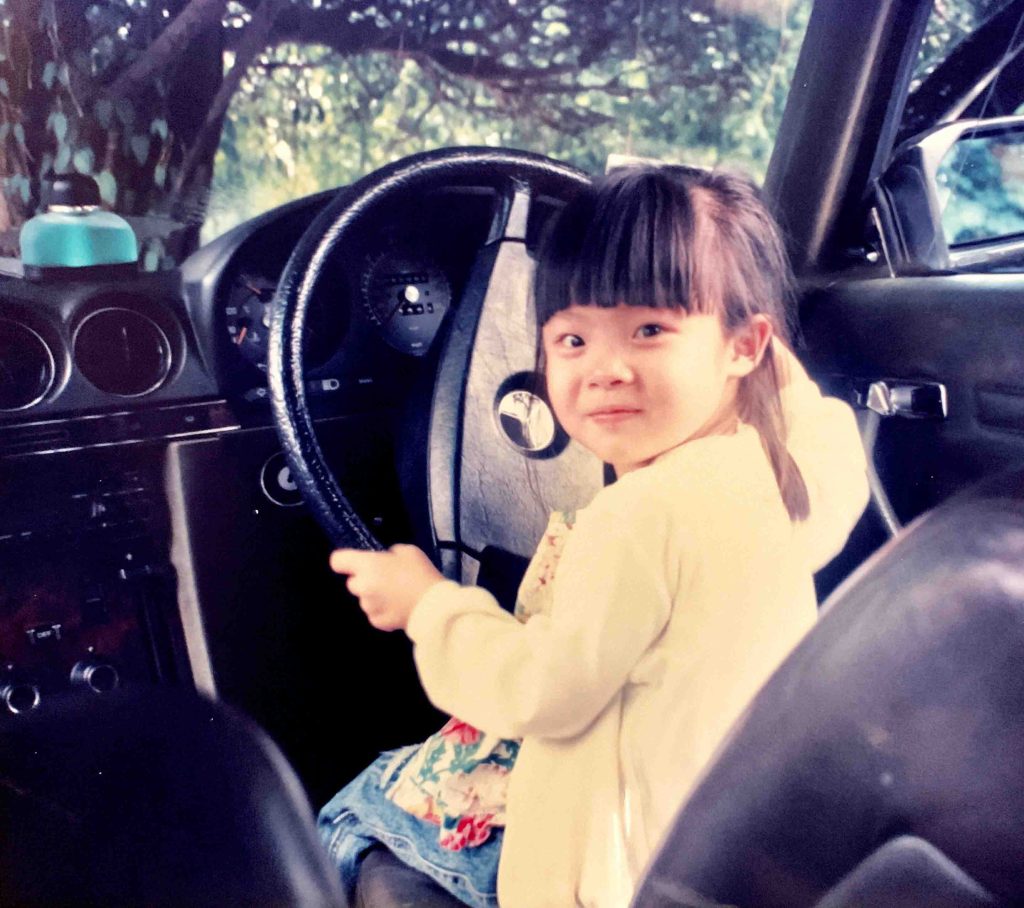
The message of Zero to Macao
Principal photography of Zero to Macao did not end with Siu’s completion of the Macau Grand Prix last November. Finnigan shot post-Grand Prix interviews in December and acquired additional material from Siu as late as March of this year.
Currently, the film has yet to be released, although Finnigan has already screened a shorter version of his full length feature for Siu, her grandmother, her friends and racing team mates in Hong Kong.
Understandably, Siu was emotional when she viewed the film for the first time. “Everything that I’ve gone through, I feel like he [Finnigan] was a part of it, and he was there for me even during the lowest times when I had serious doubts and when I was stressed about the whole process,” Siu explains. “It’s just so surreal to see this coming together and being brought onto the silver screen.”
[See more: What you need to know about the Macau Grand Prix’s shift from F3 to FR racing]
Finnigan says that Siu’s story operates on a number of levels, describing it as “a struggle against the odds story,” “a fish out of water story” and a tale of “a woman in a man’s world.” He also sees it as an exploration of the complexity behind winning, which in this case wasn’t about coming first in the Macau Grand Prix.
“To her [Siu], it was just finishing the race and that’s what life is,” he observes. “Winning can be a number [or] it can come in many shapes and sizes and the price of getting there can be an unexpected one.”
Importantly, being in Macao helped Siu reconnect with the memory of her late father. It was “a way for me to make peace with him,” she says in the film.
Siu adds that her central message with Zero to Macao is that it’s “never too late to want to do something.” In sharing her story with the world, she hopes that she can inspire people to understand that “no matter how dark or bad of a situation you’re in, there’s always better days ahead, and if you just never give up, and if you just try your best, and knowing that you’ve given your best, that’s enough.”
